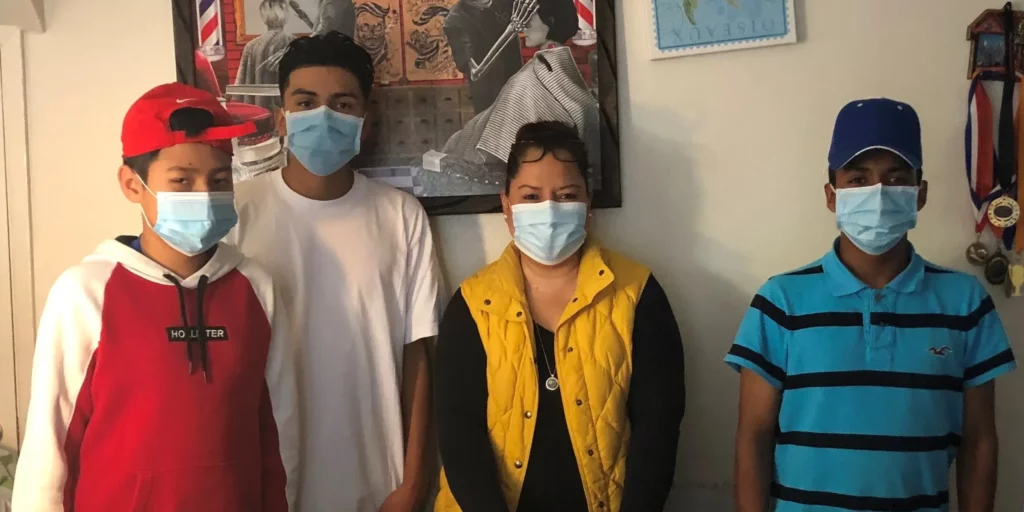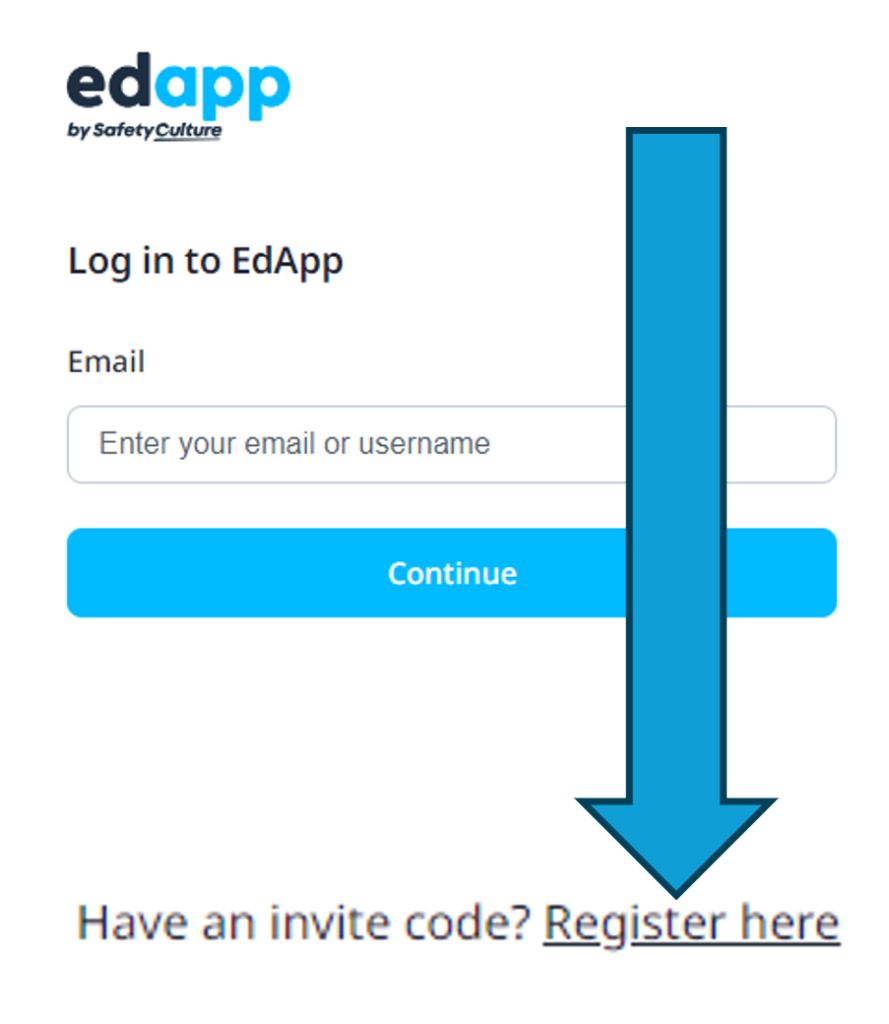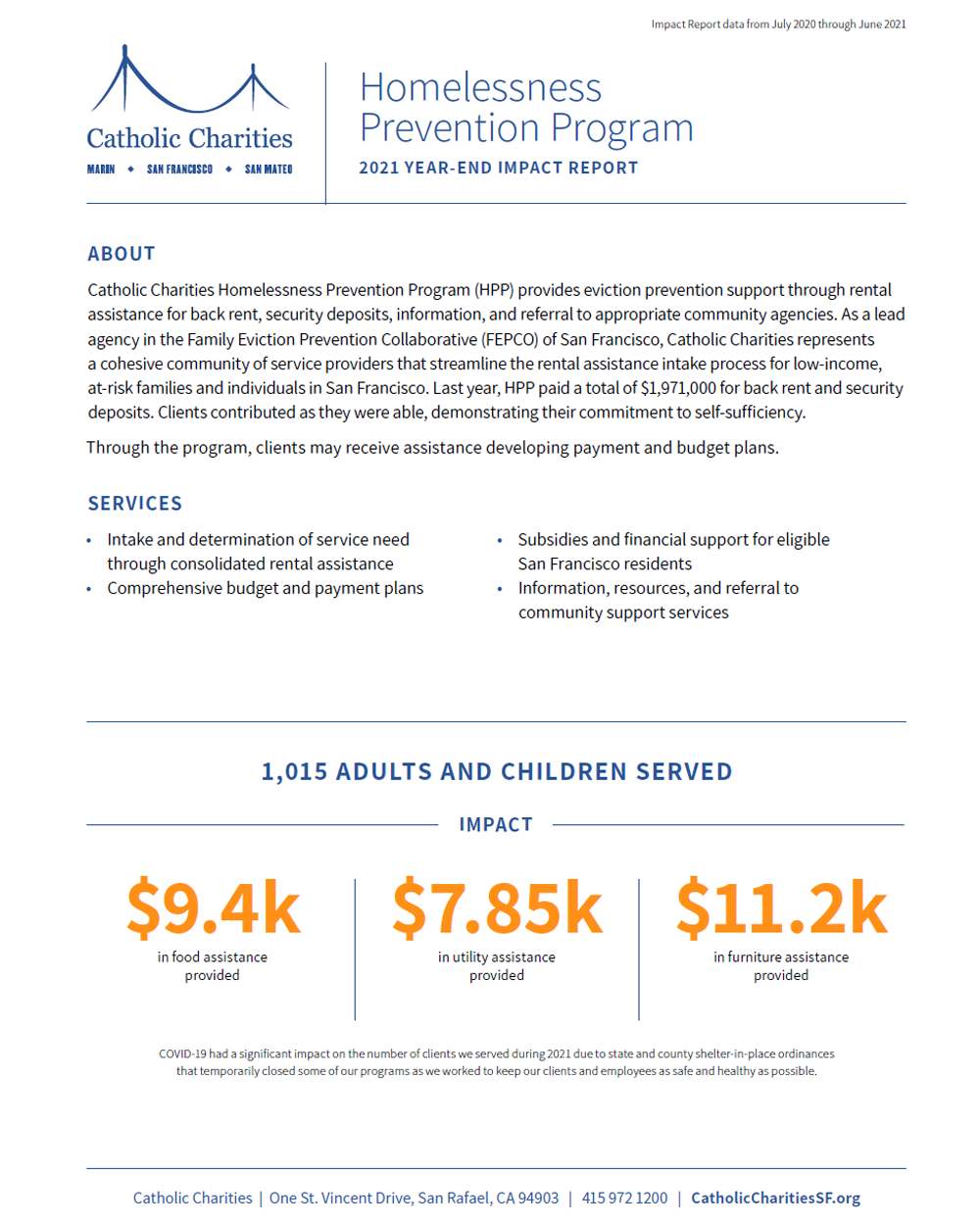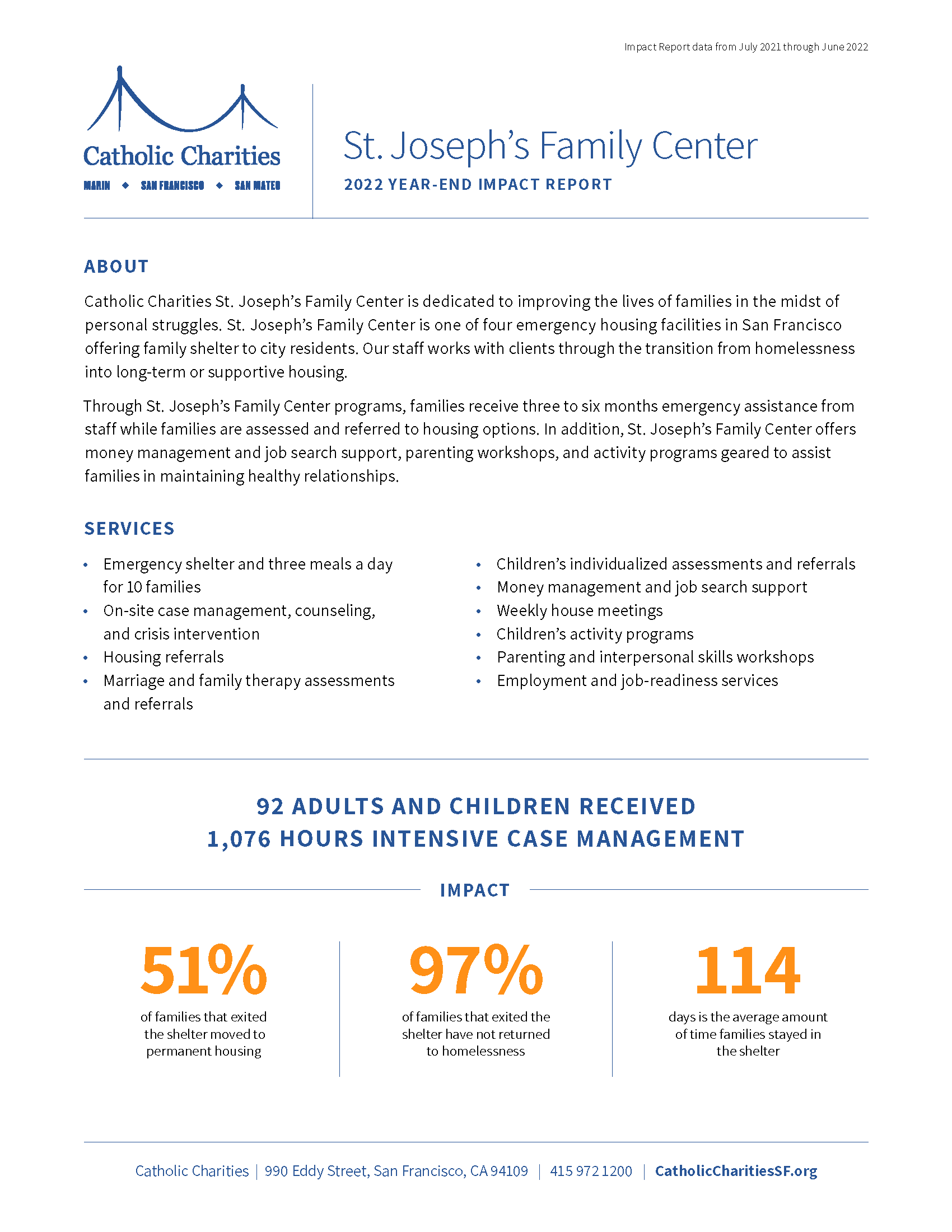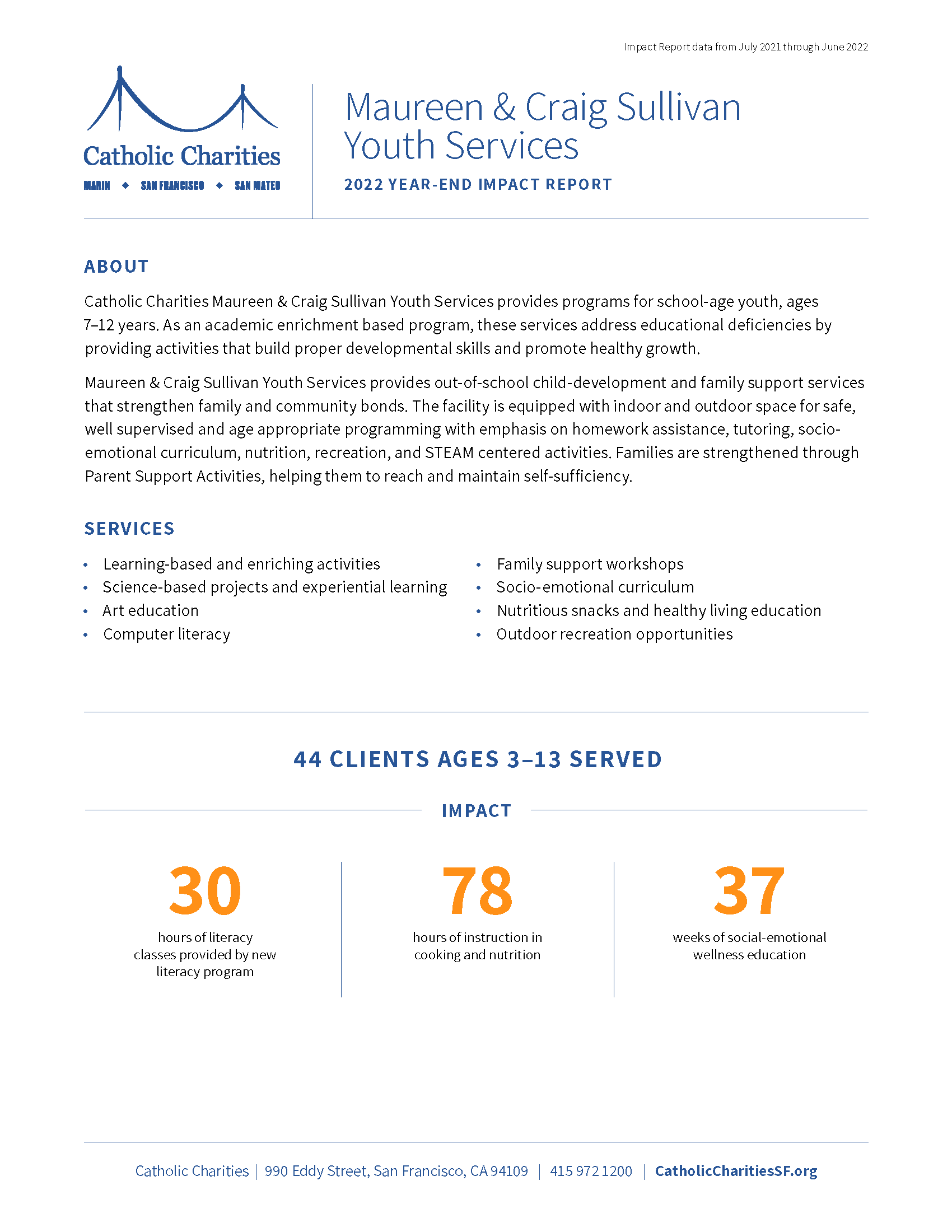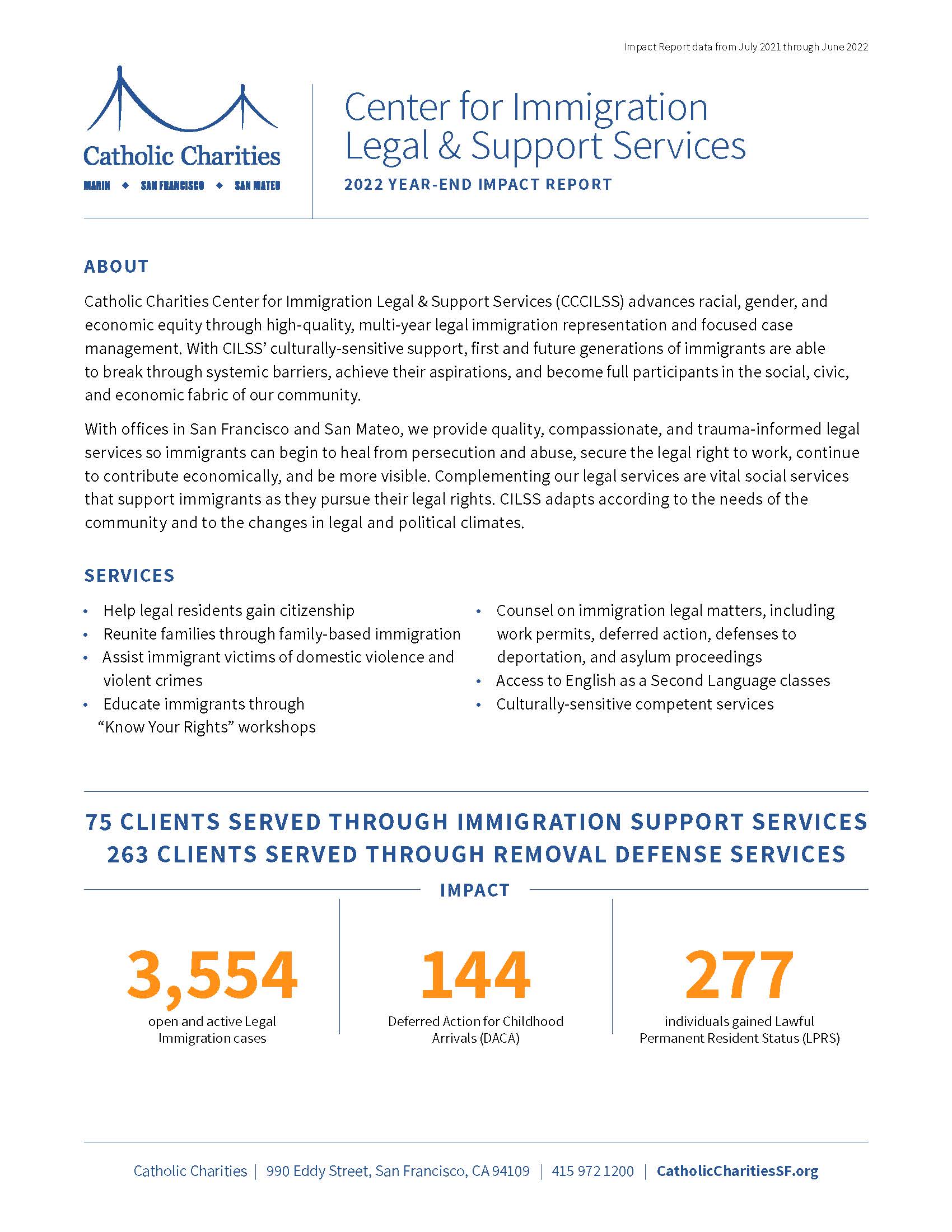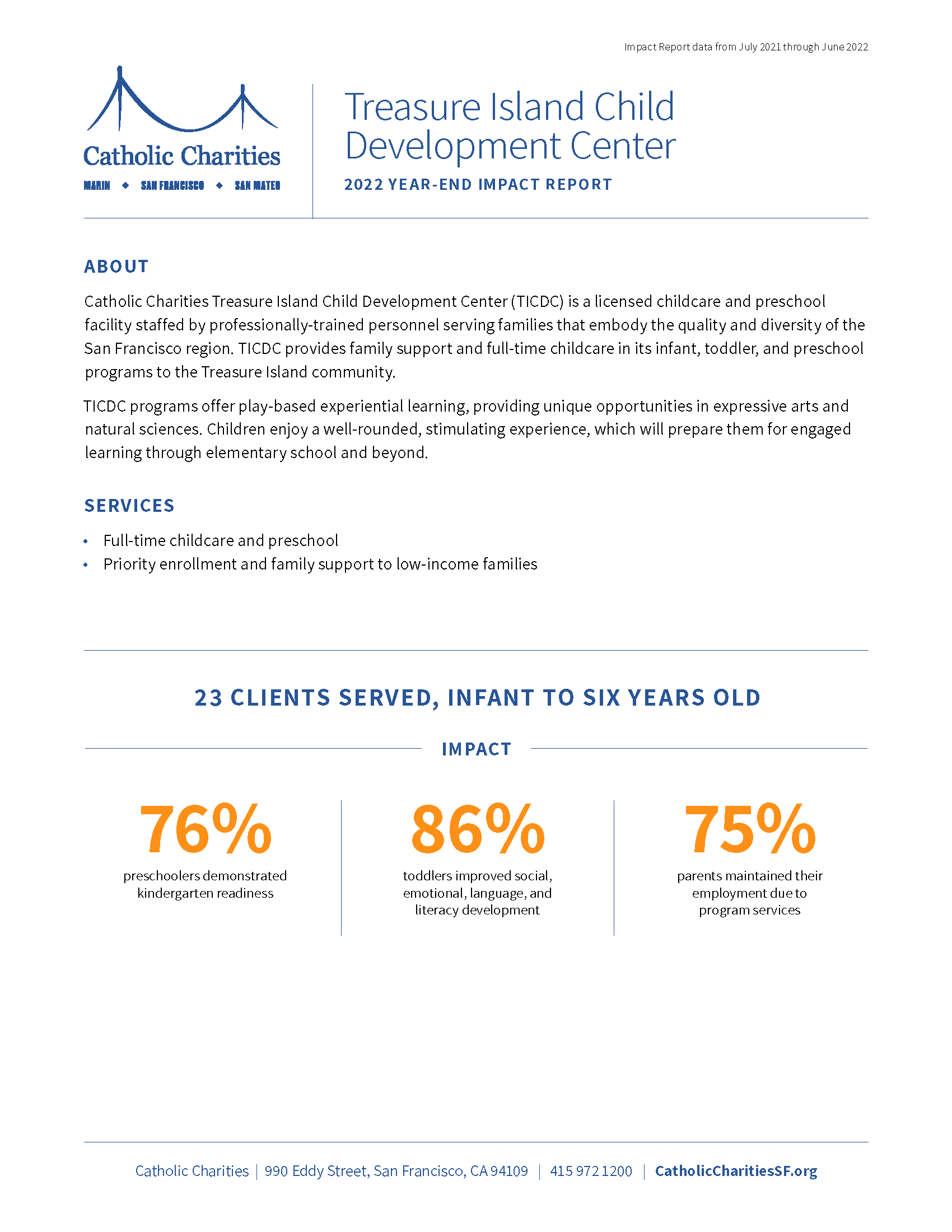by Catholic Charities – October 27, 2020
Cony Fuentes swung into action when she learned that a San Mateo resident’s four children and nephew had started the school year doing their lessons at home on the floor, living room coffee table, kitchen counter, and beds because of their tight apartment quarters and lack of computer equipment, desks, and chairs. The mother, a housecleaner, had lost significant income due to reduced hours during the prolonged pandemic. Her husband, a handyman and gardener, faced the same challenge, often driving as far as the Central Valley to work and be gone for a week at a time. The family does not qualify for government assistance and struggles to pay their rent, relying on food banks and Catholic Charities to feed their family.
Fuentes, a case manager with Catholic Charities Center for Immigration Legal & Support Services, already was acutely aware that many of Catholic Charities’ immigrant families – including the San Mateo family she was determined to help now – face yet another challenge with distance learning during the pandemic: the digital divide. Even in this wealthy region surrounding Silicon Valley, economically disadvantaged families and their children lack access to computers and the internet; the knowledge of how to use the technological platforms vital to remote learning; the space and desk areas conducive to focused learning and studying at home. “We are continuously checking in with our clients to help them prepare for these challenges, advocating for them at their local school districts and helping to facilitate meetings with teachers and principals,” says Carlos Garcia, who manages Catholic Charities Immigration Support Services and works with Fuentes.
Fuentes is relentless in pursuing services to help immigrant family members who receive Catholic Charities legal aid take the next steps toward economic self-sufficiency through education, food, and jobs. She put out the word requesting help through her networks of local schools and nonprofit providers. She quickly received multiple responses and forged ahead with her husband on weekends and evenings to secure two printers, three desks, several office chairs, a bookcase, school supplies, and healthy food. She disinfected, sanitized, and washed everything she received before delivering them to the family, helping to move furniture around, connect the printers, and set up a productive learning space for several of the youth.
Three of the youth are in middle school and high school. The two older, college-age boys each work at pizza parlors as they pursue their education at local community colleges. The older boys arrived in the U.S. several years ago as unaccompanied minors, fleeing violence in Guatemala, and were reunited with their family in San Mateo through the help of Catholic Charities Center for Immigration lawyers who successfully represented their asylum cases. During and even after a client’s legal case is finalized, the Center for Immigration Support Services staff stay in touch. Garcia, Fuentes and other staff provide unaccompanied minors and their families with both encouragement and an array of support services including case management, a leadership academy, monthly workshops on community resources, and food boxes – all aimed at helping youth and their families achieve economic self-sufficiency and full participation in the life of the community. “The families are extremely grateful,” observes Fuentes, including the San Mateo family whose small apartment she helped transform into a positive learning environment that has made a big difference in these young students’ lives and futures.
To help our immigrant families pay rent, get food, school desks, laptops, internet access, printers, and supplies, click donate here, scroll down to “How would you like us to use your gift?” and select “Immigration Support Services.”
For remote volunteer opportunities at Catholic Charities Center for Immigration Legal & Support Services, visit our Volunteering page.

